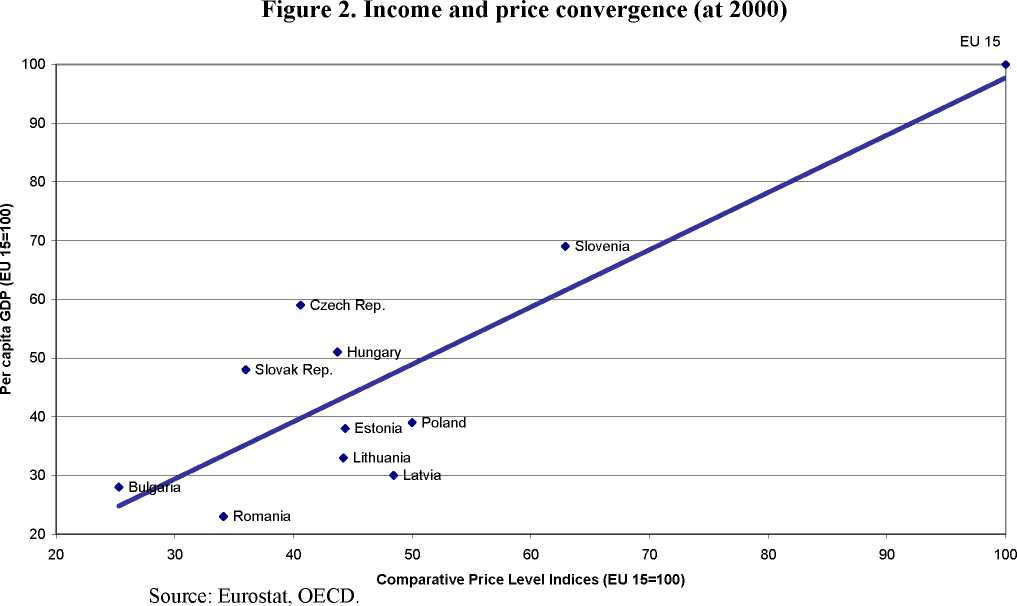William Davidson Institute Working Paper 487
improvement is evidenced after the introduction of the CB (see. Annex 3)14. The overall
rigidity of real salaries leads to an increase of inflation by hindering the BS effect (which
will be discussed later in the paper). The strong BS effect is limited by the fact that real
wage rigidity is higher in the tradable sector (industry) than in the non-tradable sector
(represented by services).

In general, the above-mentioned real factors have their effect on relative prices
between the countries participating in a monetary union, and may generate long-lasting
inflation differentials. As illustrated in figure 2, there is a considerable gap in the degree
of economic development and price levels between the group of countries applying for
EU (and later on for EMU membership) and the EU and further difference is obvious
among the candidate countries themselves. The real convergence of the candidate
14 The assessment is taken from the research of Nenovsky and Koleva (2001).
More intriguing information
1. Firm Closure, Financial Losses and the Consequences for an Entrepreneurial Restart2. El impacto espacial de las economías de aglomeración y su efecto sobre la estructura urbana.El caso de la industria en Barcelona, 1986-1996
3. An Estimated DSGE Model of the Indian Economy.
4. Surveying the welfare state: challenges, policy development and causes of resilience
5. Permanent and Transitory Policy Shocks in an Empirical Macro Model with Asymmetric Information
6. The migration of unskilled youth: Is there any wage gain?
7. Insecure Property Rights and Growth: The Roles of Appropriation Costs, Wealth Effects, and Heterogeneity
8. The name is absent
9. The name is absent
10. Flatliners: Ideology and Rational Learning in the Diffusion of the Flat Tax